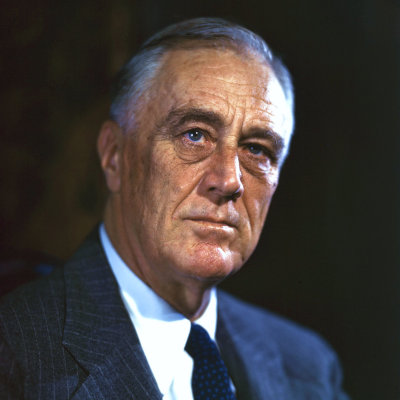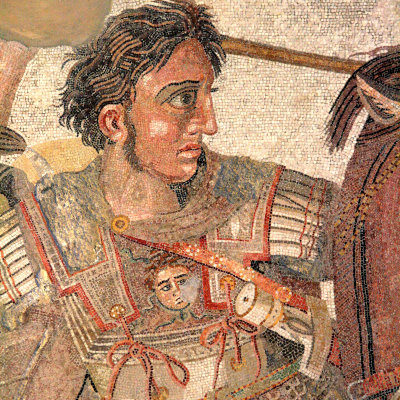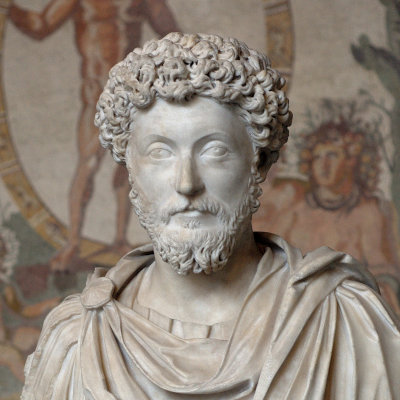 Vampire Weekend's Surprising Jewish Stories
Vampire Weekend's Surprising Jewish Stories


6 min read
Historical figures and the Jews: Can you guess who was friend or foe?
When it comes to Amon Goth and Oscar Schindler, it’s obvious who was good for the Jews and who wasn’t. Can you guess which of the following five historical figures were good for the Jews and which ones were bad?

FDR was the only U.S. president to have four terms and he served them during WWII. Was he good or bad for the Jews?
Answer: Pretty Bad.
The widely held view is that FDR, who presided over the United States in the depth of the Great Depression, championed the New Deal, and commanded the military during World War II, fighting Nazis, did the best he could to help Jews trying to flee Europe. But he had his hands tied by domestic antisemitism while being forced to deal with the demands of the war effort.
However, FDR missed several opportunities to help Jewish refugees. Though it was said that the U.S. reached its immigration quotas as a reason for barring Jews seeking asylum, 11 of the 12 years of his term never reached the maximum number. In June of 1939, he famously turned away the St. Louis, a liner carrying 937 passengers, most of whom were Jewish war refugees, for fears of possible spies. Lastly, Allied forces could have easily bombed railway lines and bridges to concentration camps such as Auschwitz. A single bomb could have saved hundreds, if not thousands, of Jewish souls. But the president refused such action.

William Shakespeare wrote plays that forever changed humanity. Was history’s most famous writer good for the Jews?
Answer: Goodish
William Shakespeare lived during a time when the Jews had been expelled from England, and in all likelihood never actually met a Jew. Despite that, his play The Merchant Venice features an Italian Jewish community with Shylock as the story’s villain. Shylock is portrayed as petty and driven by revenge, seeking his literal “pound of flesh” from Antonio, one of the story’s non-Jewish protagonists. Throughout the centuries since, antisemites have evoked the name Shylock as an insult, weaponizing the character.
However, given the comparison to other playwrights of the time, such as Christopher Marlow’s murderous Barabas in The Jew of Malta, Shylock is portrayed as an actual human being. In fact, he’s given the play’s most humanizing speech:
If you prick us, do we not bleed? If you tickle us, do we not laugh? If you poison us, do we not die? And if you wrong us, shall we not revenge? If we are like you in the rest, we will resemble you in that.
Shylock is a complex character who is reacting out of the oppression and indignities levied on his fellow Jews. It is that flawed but honest humanity that has endured the centuries, opposed to the caricature Shakespeare could have made him.

Mahatma Gandhi inspired resistance against the British empire in occupied India through non-violence. Was he good or bad for the Jews?
Answer: Not so good.
Mahatma Gandhi’s strides for civil rights and freedom changed not only India, but the world’s concept of how to stand against oppression. He had much in common with Judaism's similar ethical mission.
However, Gandhi put his theory of non-violence to its absolute and absurd test when he criticized victims of the Holocaust:
“Hitler killed five million Jews. It is the greatest crime of our time. But the Jews should have offered themselves to the butcher’s knife. They should have thrown themselves in the sea from cliffs.... It would have aroused the world and the people of Germany.... As it is they succumbed anyway in their millions.”
Gandhi did believe the Jewish people had an earlier claim to the land of Palestine than the Arabs. However, he was still anti-Zionist, believing it was an extension of European imperialism, and also decried the use of violence the Jews would need to secure the land. He insisted that the Jewish people wait and “rely wholly on the good will of Arabs… They must wait for its fulfillment till Arab opinion is ripe for it.”
Nonviolence may work for inspiring change, but when bloodthirsty attackers such as the Nazis and radicalized terrorist groups are coming after you, the high minded criticism isn’t appreciated.

How was the history’s greatest conqueror towards the Jews?
Answer: Great!
Alexander III of Macedon was king of Greece by the age of 20, conquered virtually the entire civilized world by the age of 30, and had he been Jewish probably would have also been a doctor, a lawyer, and an engineer.
When it comes to conquering militaries, the Kingdom of Israel has usually butted heads with them. However, when Greece came to Israel under Alexander the Great, he decided to be lenient. Why?
The Talmud recounts when Alexander and Simon the Righteous first met, Alexander bowed to the High Priest, claiming he had seen Simon’s face in a vision before his victories in battle.
So instead of subjugating Israel, he made an arrangement with them. As long as they remained loyal and paid taxes, they could keep their autonomy and most importantly, their religion.
This tolerance was rare for Alexander, as was his admiration. When shown the beauty of the Holy Temple, Alexander was so impressed, he desired to have himself immortalized via stone statue of himself next to the altar. Simon expressed that might be a problem given that whole “no idols” thing that Judaism is predicated on. So Simon offered a compromise, he’d have every Jewish boy born in the coming year named “Alexander.” The conqueror agreed and that explains why there are so many Jews named Alexander, Sander, and Lexi.

Rome and the Jews didn’t get along. But was Rome’s most enlightened Emperor any better?
Answer: Rather Friendly
Roman emperor and Stoic philosopher Marcus Aurelius Antoninus ruled the empire during its final years of the stable Pax Romana. His writings Meditations is a masterpiece in guidance and self-improvement.
The Talmud describes a Roman emperor named Antoninus (believed by most to be Marcus Aurelius) who was very good friends with the rabbinical giant, Judah, The Prince (Yehuda HaNasi). Two corresponded over philosophical questions such as the nature of the cosmos, reward and punishment, and life after death. They also advised each other on matters of state policy and even became confidants. Their connection ushered in a blissful (albeit brief) peace between Rome and the Jews.
